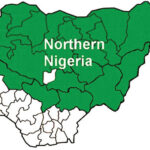With 25 million new connections expected in 2021 through the Economic Sustainability Plan (ESP), the Lagos Chamber of Commerce and Industry (LCCI) has said solar power as an alternative to the national electricity grid will be boosted.
Director General of the Chamber, Dr Muda Yusuf, who disclosed this in his economic and business review for 2020 and outlook for 2021, also said electricity tariff increment is inevitable with the rising cost of power generation.
He said the Generation Companies (GenCos) need more funding to procure necessary facilities that would help improve power supply, while the Distribution Companies (DisCos) need improved liquidity for enhanced efficiency.
Yusuf recalled that the Service Reflective Tariff (SRT) model, which was introduced on September 1, 2020, to encourage investment in power infrastructure for improved service delivery might have led to some form of hardship for individuals and businesses.
However, he said solar power is expected to gain momentum with some 25m individuals gaining access to solar home systems or connection to a mini-grid through the ESP.
Yusuf also said the successful implementation of the policy will boost rural infrastructure as well as growth and productivity of Nigeria’s rural economy.
On foreign exchange, the LCCI boss said forex supply will face continued pressure due to relatively lower dollar inflows from oil, foreign investment, and diaspora remittances.
He, however, stressed that the CBN is expected to sustain its demand management strategies via rationing and restricting access to forex for food imports.
Dr. Yusuf said a second wave of the COVID-19 pandemic in Nigeria could propel governments to enforce strict restriction measures, which poses threat to the recovery prospects of the Nigerian economy currently in recession.
For the African Continental Free Trade Area (AfCFTA) slated to begin January 1, 2021, LCCI said it will remove tariffs on 90 per cent of goods.
“Nigeria should strategically position itself for significant trade gain; AfCFTA poses competitiveness risk for Nigeria firms, especially for those in the real sector of the economy,’ he stated.
 Join Daily Trust WhatsApp Community For Quick Access To News and Happenings Around You.
Join Daily Trust WhatsApp Community For Quick Access To News and Happenings Around You.


